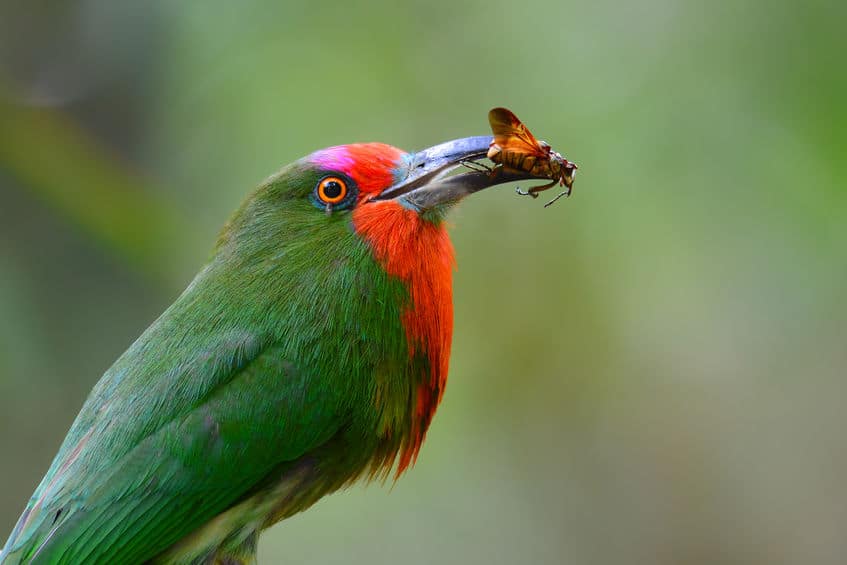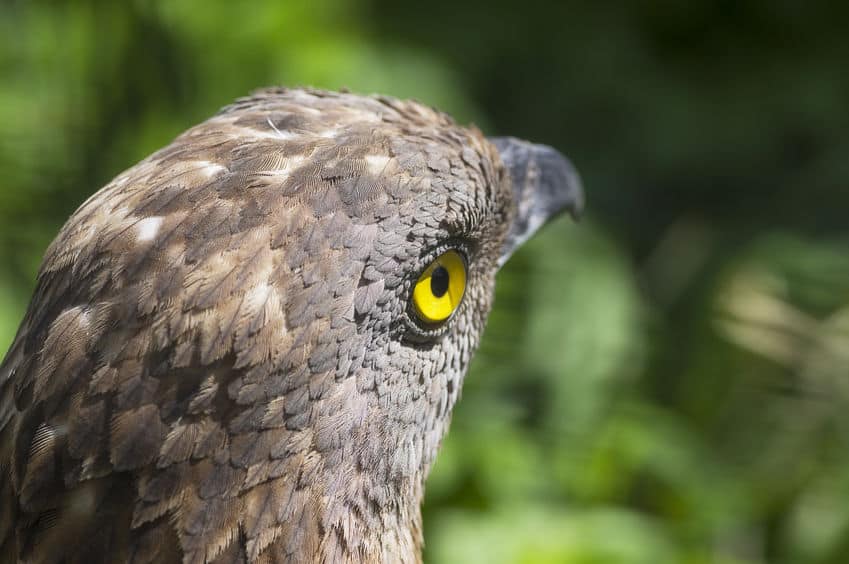While wasps are prolific hunters they are also hunted.
Many birds will include wasps in their diet but some birds such as the bee-eater and the European honey buzzard are specialist wasp eaters. Despite its name, the European honey buzzard predominantly feeds on wasp larvae and has adapted scale-like head feathers and chemical deterrents as protection against wasp stings.
let’s take a closer look at these wasp predators.
Many birds eat wasps
Many birds feed off insects and for many of them, wasps are simply part of this diet. Some birds known to eat wasps include bluebirds, blackbirds, warblers, starlings, wrens, magpies, and nighthawks but many other birds will also eat them. Some birds specialize in eating wasps such as the bee-eater bird.
Bee Eater Birds
Bee-eater birds eat bees and wasps. They are mostly found in Africa, Asia, and southern Europe. They catch the wasps mid-air and remove the stinger by bashing the wasps against a tree before eating them. By closing their eyes and squishing the wasps before eating them they effectively discharge all the venom out of the wasp so removing the threat.
Bee-eaters can see large wasps at up to 330 ft (100 meters). They will not catch wasps that have landed but rather catch them from behind in flight. On average 70% of the bee-eater’s diet is made up of bees and wasps.

European Honey (Wasp) Buzzard
Despite its name wasps are much more important to this bird’s diet than bees. For this reason, the honey buzzard is called a wasp buzzard in German. It is the only known predator of the Asian giant hornet. Found across Europe it also migrates to Africa. They live predominantly from the larvae in wasp nests. It has evolved scale-like feathering on its head to protect it from stings. In addition, they have developed a chemical that when released also acts to deter wasps. It is believed to have a sedative effect on the wasps.

Many birds target solitary wasps
Social wasps that live in colonies are the wasps that people are most likely to come into contact with. Solitary wasps do not live in colonies and many do not attend their young, unlike social wasps. This makes them easier targets for birds. Solitary wasps will often create nesting sites and stock them with prey for the larvae to eat before leaving the site for good. Birds that can find these nests have an easy meal and do not need to worry about a stinger.
Birds as deterrents to wasps in gardens
For the most part, birds are not huge deterrents to wasps. While many birds will feed on wasps, for most birds the stinger means that they will target other easier insects ahead of wasps given a choice such as caterpillars.
You may not want to deter wasps from your garden completely. While wasps can be annoying to us humans they are also good pollinators and act as excellent pest controllers as they prey on aphids and caterpillars that would otherwise eat our plants. See this article
